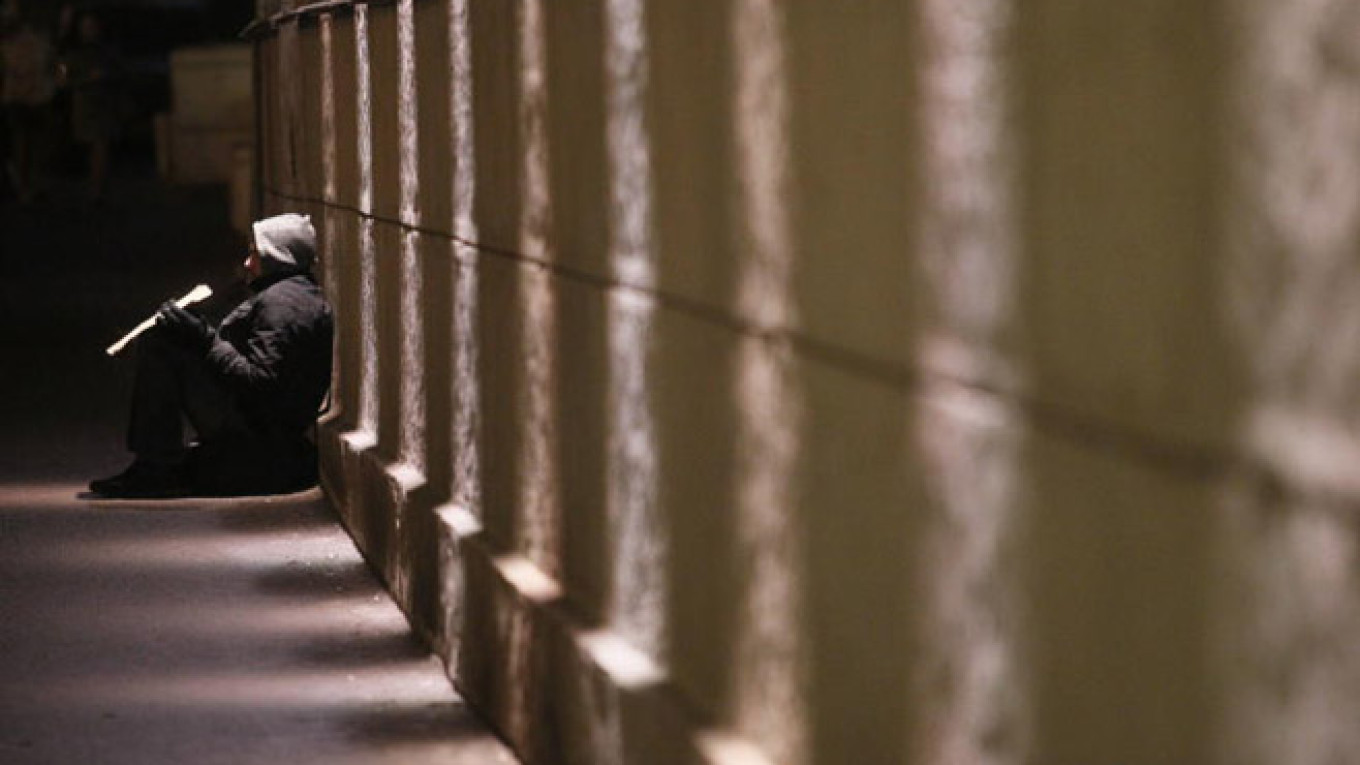Despite dire economic forecasts, Russia will escape high unemployment and social unrest this year thanks to an exodus of migrant workers, clever politics and a flexible shadow economy, analysts said.
Officials are braced for layoffs. Russia must "prepare for the fact that people will become unemployed," Deputy Prime Minister Igor Shuvalov said last month. Extra cash has been allocated for unemployment benefits, and Moscow's economic crisis plan will inject over 52 billion rubles ($790 million) into job creation.
But January was full of announcements of mass firings. As the state began trimming spending by 10 percent almost across the board, media companies, state firms, industrial producers and banks said they would shed thousands of jobs.
Yet analysts said the unemployment rate, now at 5.3 percent, would not spiral. Russia's workforce is shrinking, and the state knows mass layoffs in the public sector could cause political trouble.
Russia will use its "traditional" crisis management technique by cutting salaries over firing staff, said Vladimir Gimpelson, director of the Center for Labour Market Studies at Moscow's Higher School of Economics.
According to official estimates, real incomes will fall this year by 9 percent.
All Will Suffer
"Nobody is immune in this crisis," and all sectors will suffer job losses, said Chris Weafer, senior partner at Russia-focused business consultancy Macro-Advisory.
Western sanctions on Russia over Moscow's actions in Ukraine and a plunge in the price of oil, Russia's main export, have slashed Russia's income and are propelling the economy toward a contraction of up to 5 percent this year.
Construction and consumer services like retail and restaurants will see big job losses, analysts said, but metallurgy, car production, advertising and the financial sector all face cutbacks.
The ax may fall hardest on bloated state-owned companies caught up in the government's belt-tightening, according to Weafer.
According to online employment service Superjob, the number of jobseekers in January leapt 9 percent, while advertised vacancies fell 8 percent.
But Migrants Suffer First
Central Asian migrant workers will be the economy's first shock absorber, according to Weafer. A near-halving of the value of the ruble to the U.S. dollar over the last year has slashed the buying power of the remittences they send home to support their families, while rising inflation in Russia increases the cost of living.
The number of incoming workers has already fallen sharply, according to Russia's Federal Migration Service. Over 500,000 Uzbeks and Tajiks left Russia in the second half of last year, news agency RBC reported on Wednesday citing migration service data.
Russian employers are also likely to fire migrants first, creating openings for any Russians willing to take their typically low-paid jobs.
Without this factor, Weafer said, unemployment could rise to 9 percent this year. With it, he predicted an increase to between 6.5 and 7 percent.
The Economic Development Ministry predicts 6 percent unemployment this year.
Shocking Bureaucrats
Another unlucky group are middle-class bureaucrats, whose likely job losses in 2015 will be a "shock to the system," according to Weafer. These — some 20 percent of the workforce — are the backbone of President Vladimir Putin's political order. The ax has not fallen on them since the 1990s, when Russia endured economic turmoil under former President Boris Yeltsin.
In the global economic crisis of 2008-09 oil prices fell to $40 per barrel, wiping 8 percent off Russian economic output and doubling unemployment. The fall was sharp, but the recovery was swift.
This time is different. The economy began slowing in 2013, and the key problems are structural. That means unemployment will rise more slowly, but will be harder to beat back, according to Andrei Pavlyuchenko, senior analyst at jobs website rabota.ru.
Employers weathered the 2009 crisis because they knew the end was in sight, analysts said. This time no one expects a quick recovery and even the state will have to trim some fat.
Pavlyuchenko forecast unemployment by the end of the year at 8.5 to 9 percent.
Shrinking Workforce
Russia's demographics mean its workforce is shrinking. According to Weafer, it will decline by up to 10 percent over the next 8 years, exerting powerful downward pressure on unemployment.
Also depressing unemployment are miserly benefits, which the government uses to discourage out-of-work Russians from kicking back and avoiding hunting for a job. The maximum payout is around 5,000 rubles ($75) a month, Gimpelson said, and the average payout is 2,700 rubles, or 8 percent of the average Russian salary.
Most Russians don't even bother to sign up and, understandably, take the first work they can get.
Even if this means in the shadow economy, where one-fifth of Russia's working-age population already earn a living, Gimpelson said.
Social Unrest?
Russia's misery index — found by adding together a country's unemployment and inflation rates — was 16.7 percent at the end of last year (5.3 percent unemployment plus 11.4 inflation). With inflation predicted to near 15 percent over the coming months, if unemployment increases Russia's misery index will rival that of Greece, which is on about 24 percent.
But Russia is unlikely to suffer a Greek style political turmoil, analysts said.
The Kremlin knows what it is doing: Siloviki — the name given to employees of law enforcement bodies — won't be fired, said Pavel Kudyukin, a lecturer at the Higher School of Economics.
State employees — of which there are 15 million, according to Gimpelson — will see salary cuts and part-time work rather than full layoffs.
Protests will flare up, but will remain local and small scale.
Pavlyuchenko said, "Social pressure is possible; Political [pressure] is not." Thanks to clever state management of virtually all Russian media outlets, Putin may even get more popular as the economic situation worsens against the backdrop of Western sanctions, he added.
Deputy Prime Minister Shuvalov, a dollar multimillionaire, was equally confident, saying Russians would "withstand all hardships … eat less food, use less electricity."
Contact the author at p.hobson@imedia.ru


